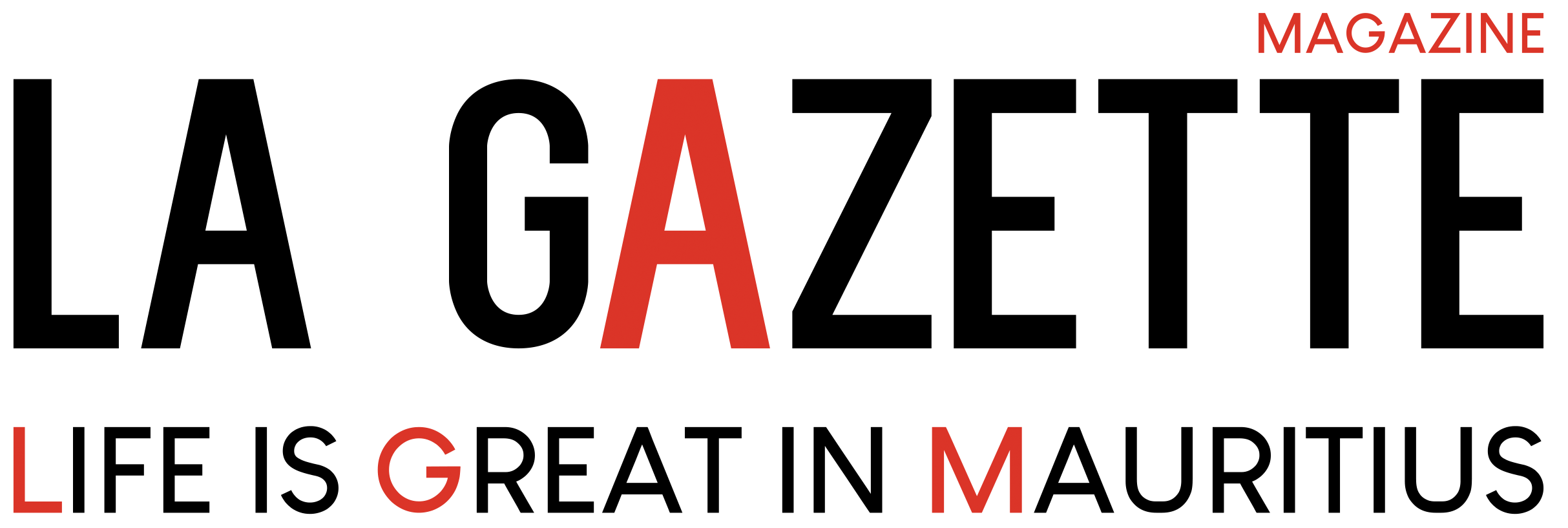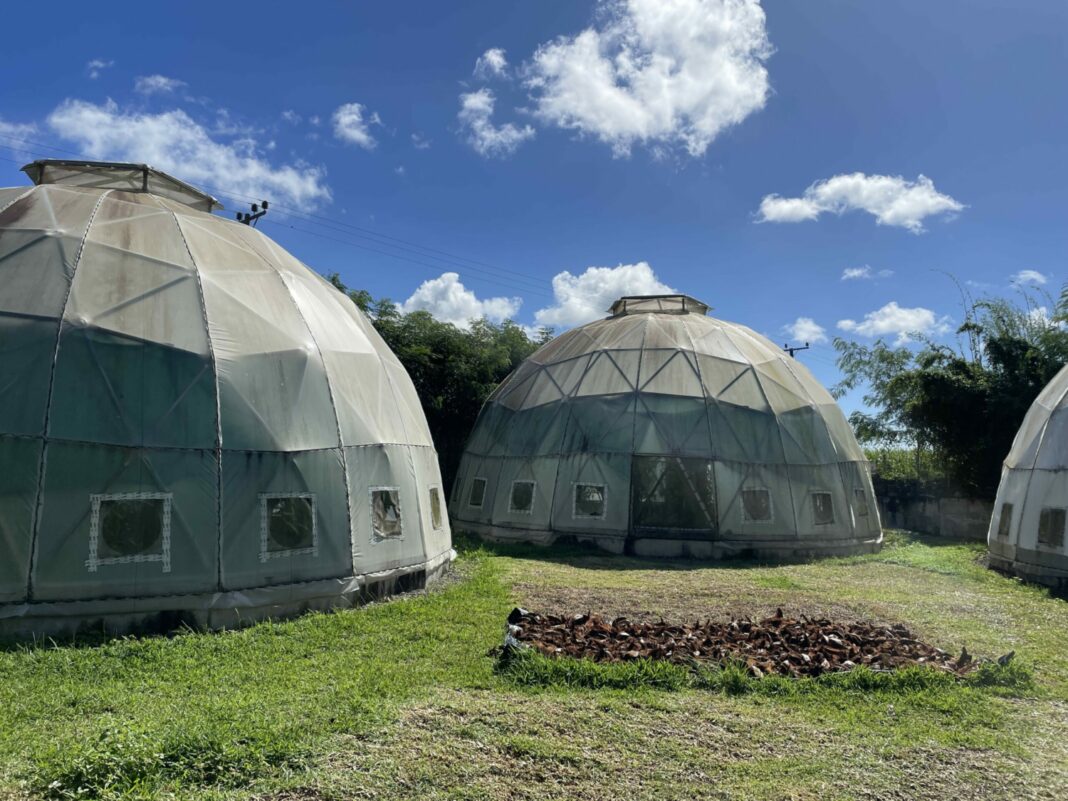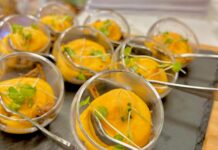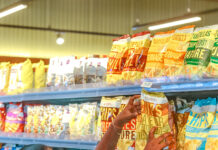Agriculture and nature in synergy!
This month, Gazette Mag takes a look at farming methods that draw on the wealth and science of nature, limiting the use of non-renewable inputs and protecting our health and that of our planet! Let’s discover together the practices inherent in these sustainable production methods, through passionate… and fascinating speakers!
Delphine Raimond
A few definitions to help you understand
Agroecology, a contraction of “agronomy” and “ecology”, draws on knowledge from ecology, agronomic science and the world of agriculture. Its systemic approach aims to optimize food production without endangering nature.
Permaculture is a global, sustainable concept that protects ecosystems and natural cycles… a blend of the words “culture” and “permanent”.
Aquaculture is the farming of fish and plants in an aquatic environment.
Hydroponics is soil-less cultivation on a neutral, inert substrate (sand, clay pebbles, rockwool, etc.), without soil or potting mix, using controlled irrigation, water chemistry and distribution of mineral salts and nutrients.
Aeroponics is high-speed hydroponics. With no need for a growing medium, plants are fed by a nutrient-rich spray and develop their roots suspended in the air.
Aquaponics combines the terms “aquaculture” and “hydroponics”. It’s based on the use of water from a fish farm to fertilize plant crops, with the dejecta serving as fertilizer. The life present in this water is very similar to that of soil.
Extraordinary gardens!
A little way from the village of Pamplemousses, a lovely German couple have been cultivating the only edible fruit in the orchid family: vanilla. Under four domes built by their own hands, the pod grows! In their bioculture research laboratory, Ragna and Elmar analyze, adjust… in order to obtain maximum flavor, drawing on the similarities between the metabolisms of the vulnerable vanilla and humans: hormones, proteins, enzymes… While the greenhouses offer a constant climate and quantity of water and light, here and there – in various environments, in order to observe their behavior – grow epiphytic lianas up to 25 m long. The site is surprising, Elmar fascinating! With humor and humility, he shares with the island’s planters the secrets of pollination, processing (heat treatment, ventilation…), the consequences of premature harvests and poor storage conditions. Here, cocoa, coffee, bananas, cinnamon and the insecticidal neem tree are also naturally grown for personal consumption. The exceptional vanilla is exported to Europe and Canada, and sold locally at L’Aventure du Sucre!
At Roches Brunes, Éric grows extraordinary lettuces on his roof, protected from snails and other pests on the ground. His culture is aquaponic. Fish excrement from his ponds provides nutrient-rich water that passes through settling tanks to feed NFT (nutritive film technique) tubes, before returning to the ponds. A closed, 100% organic circuit, where the sun and the fish do the work! And when they grow up, they can simply be eaten! In his garden towers, Éric composts his kitchen waste to feed the worms, which in turn feed the earth, completing the circle! “With farmland disappearing in Mauritius and some supermarkets charging prohibitive prices, aquaponics is the solution of the future for growing your own vegetables and eating healthily.
“Cité Zen, les petites paumes de terre” is a practical teaching tool developed for elementary school by the Vivo Energy Foundation, designed to reinforce the principles of life and earth sciences in the school curriculum. These mini aquaponics gardens teach youngsters an ecological and responsible way of growing and feeding themselves sustainable, nutritious food. To date, nine above-ground gardens are operating in closed circuits in schools and NGOs working with vulnerable children. The agro-ecological mission, which contributes to the well-being of the community, involves raising young people’s awareness of environmentally-friendly farming practices.
In Deux Bras, Gael – who needs no introduction in Mauritius – has been following the principles of permaculture for many years, for a lifestyle in total harmony with nature. Rare multifunctional plants, vegetables, fruit, roots… make up his wild garden, which he shows to visitors and Mauritians keen to reconnect with their land. Looking at some of the very tall trees, one wonders how Gael manages to get his fruit there! The concept is to let nature take its course: “What’s down there is for us; what’s up there is for the birds, who will redisperse the seeds and regenerate the forest. The sun gives Gael energy; the clouds soothe him to work in his garden; with the rain, he is “mari kontan”, as the reservoirs are filled and the plants watered. Happiness is in the meadow!
Every year on May 20, World Bees Day is an opportunity to highlight the essential role played by these little pollinators in preserving the ecosystem, and the energetic and therapeutic value of honey! A number of local players are making sustainable use of the benefits of honey, and are now turning their attention to beekeeping. Antioxidant massages with rice and honey at the spa, honey-based pastries and jams, candle-making workshops… are just some of the Salt of Palmar hotel’s initiatives in this area. The Sunlife group, whose sustainable development program mascot is the Izzy bee, has already placed 11 hives (50,000 bees) at Long Beach and on Ile aux Cerfs, and plans to install 1.2 million bees in the gardens of all its hotels by the end of the year. For the past year, alongside Éric Laval, founding beekeeper of Les Abeilles de la Baraque, the Smart Village Savannah Connected Countryside has been training and educating twelve residents – future beekeepers – in the skills of this eco-responsible agricultural production.
In Clavet, adjacent to the village of Sebastopol, Michel has transformed seven hectares of sugarcane fields into a surprising 100% ecological garden, fragrant with guavas, lemons, sour cherries… and the heady scent of gourmet vanilla, the harvest of which will be taken to Elmar for processing. Hundreds of chickens roam free on this totally regenerated land, which boasts no fewer than 80 plant species, fruits and vegetables, for both local consumption and export. Soon, this fabulous botanical garden will be open to visitors, to tell the rich history of Mauritius through plants, to introduce visitors to the species and biodiversity of this nourishing forest, to let them taste fresh juices, cocoa, coffee… and to teach them all about agroecology. “Unlike rapid production, which degrades the matrix, here the land is valued and enriched. The soil contains everything you need to nourish a plant – it’s the basis!” explains Julien, an agronomist who is working alongside Michel on this project, which also aims to develop the commercial production of essential oils already distilled on site.
Well-trained agripreneurs
Agripreneurs – a contraction of farmers and entrepreneurs – are a new generation of agricultural entrepreneurs, convinced that the future lies in getting back to the land and cultivating it sustainably. By the end of 2022, the agricultural sector accounted for just 3% of the country’s overall economy! Driven by the desire to restore agriculture to its essential, sustainable role, a number of organizations offer theoretical and practical training in agro-ecology.
The Académie du Vélo Vert, which promotes safe local consumption and food safety, is rolling out a program that enables professionals and project leaders – individuals or companies – to become agripreneurs in the Vélo Vert network, supported right through to the labeling of their production. The training program benefits from international and regional support, with trainers from the FAREI (Food and Agricultural Research and Extension Institute), the FORMA’TERRA establishment in Reunion and the RTC (Regional Training Centre), among others. From the design of an agroecological system to the essential notions of autonomy and sustainability, via the various inherent practices… the program comprises twelve modules which, once validated, award 15,000 rupees worth of tools to participants.
In March, Agrïa certified 18 Mauritian entrepreneurs from the Bel Ombre region in sustainable tropical agriculture, as part of its “Zéro Kilomètre” program. Sponsored by Heritage Villas Valriche’s CSR (Corporate Social Responsibility) funds, the training included numerous partners from the sugar industry, as well as the Mauritius Chamber of Agriculture. A collaboration charter has been drawn up with Agrïa, which is offering plots of land to this first crop of agripreneurs, on the sole condition that they apply the principles of sustainable cultivation and short circuits (sale to Heritage Resorts hotels), thus limiting soil pollution and transport-related pollution.
In the same spirit of food sovereignty, the Ferney agri-hub is rethinking tomorrow’s agriculture. In the heart of the valley, over 30 hectares are dedicated to sustainable agricultural practices, to which agripreneurs are committed. Their partnership with, among others, the Ministry of Agribusiness and FAREI, is helping to develop an integrated ecosystem and anticipate the demands of sustainable production. This collective initiative, which provides a high-quality local supply, offers numerous advantages, including easier access to financial institutions, training and technical monitoring. This vast area is home to agroecologically grown tropical vegetables and fruit, medicinal plants for research purposes, and spirulina, a microalgae that will be transformed into 100% natural food supplements!
Sandie, a farmer with a big heart!
On a plot of land at the Ferney agri-hub, I meet up with the radiant Sandie, whom everyone here calls “chef”, but who refuses to be, given that the project’s socio-communitarian concept excludes any notion of hierarchy. Sandie came up with the idea after the Wakashio oil spill in 2020, when she realized that some fifteen women fishermen on the southeast coast could no longer feed their families! “From the sea, they returned to the land! Here, we plant, we tend, we grow… to eat!”
Today, half of them have found new jobs, but Sandie continues her mission, alongside five women who hoe this community garden with a restorative, life-saving energy! “Anyone can come and see me, cultivate, for themselves or for others. I give you a little piece of land, you take it, you work it, it’s all for you ! with no contracts or constraints.”
When she arrived, Sandie wanted to plant everywhere, but soon realized that there were specific methods for sustainable cultivation and production. “Ferney, Bioculture, Vélo Vert, FAREI… gave me all the keys! I listened, applied and explained in my turn”, she confides, before adding proudly: “At this place, we grow vegetables for local consumption, and maintenance is daily! Over there, corn, pistachios, potatoes… take longer to grow, but less work! Here, cassava is planted every two weeks, for a regular harvest, and further afield, there are lychees, limes, breadfruit, banana trees, coconut palms, avocados…”. The growers recently set up a cooperative to access markets and sell their agroecological produce.
I realize that, worked with the right tools and techniques, this rock-hard soil is incredibly fertile! Sandie adds with a smile that, with courage, patience… and love, anything is possible! For her, success means first and foremost observing, analyzing and adapting solutions. “The land is on a slope, so we hold back the soil with this low wall and catch the rainwater that runs off at the bottom. Only manure and compost are used here!
Relaxed and happy to share the moment with me, Sandie laughs as she tells me about the gentleman over there who has “a passion for passion fruit”; about the fresh eggs and free-range chickens further afield; about the beehives collected from nature and set up near the office at the entrance to the estate, and about the ones that will soon be in place here, to pollinate the crops, because the planters have also been trained in beekeeping!
While love of the land undeniably led these women here, what they found above all was a place of their own, free from noise, neighbors and pollution, to share tears, confessions and laughter… Free and happy!
The Mauritius Chamber of Agriculture (CA)… in the field!
Jacqueline Sauzier, the General Secretary of the CA of Mauritius, explains the principle behind the Smart Agriculture project, initiated in 2015, and talks to us about “getting back to the land”.
What is the Smart Agriculture project?
Managed by the CA, the project supports producers, growers and farmers in the agroecological transition, with the support of FAREI, CIRAD (Centre de coopération Internationale en Recherche Agronomique pour le Développement) of La Réunion and funding agencies such as the European Union and MRIC (Mauritius Research and Innovation Council).
Since 2018, thirteen growers have been assisted in improving their knowledge and expertise, purchasing equipment on test plots, and technical monitoring to ensure understanding of productive issues and the efficiency of changes. Demonstration by example!
Where do you stand with the program, five years on?
In an intermediate analysis phase, we demonstrated that it was possible to significantly reduce the use of chemical products by 38% on average… and up to 94% on calabash, albeit with little impact on production. The next step is to carry out an economic analysis of the implementation of these practices, to validate the improvement in soil quality and the environmental benefits, and to disseminate these trials to the planter community. Phase 2 ends in August 2023, and phase 3 is divided into two projects. The first, Karo Natirel, is already helping growers to enhance the value of sustainable agriculture, through certification that will differentiate their products on the market. The aim is to attract more growers to these agroecological practices and encourage them to maintain their healthy businesses. The second, currently in preparation, is the creation of an educational tool to support them in their transition.
Do you think that the younger generation is inclined to return to the land-based professions, now known as “professions of the future”?
We’re seeing a strong reorientation towards the agricultural trades and a significant number of young people wishing to improve their knowledge, through the Starting your journey in agriculture training program, run by the CA, in collaboration with the RTC. We’re on our fifth group of 20 people since 2022, and as time goes by, we’re seeing a rejuvenation of those enrolled. The world is more than threatened by a food crisis, and agriculture as a means of subsistence or livelihood is the solution. It’s an opportunity to be seized, and that’s what we’re trying to make young people understand.
With the necessary return to the land, the diversification and digitization of the sector, a good number of positions are to be filled, and several sugar groups are currently recruiting in the cane and agricultural diversification sector.
Preparing your soil: agro-ecological techniques!
Soil, that formidable ecosystem, contains organisms operating in different layers, whose presence and actions determine its nature and fertility. Good soil means good crops and better yields!
Earthworms not only add organic matter to the soil, but also help to aerate it, through the microtunnels they dig. So turning over the soil becomes less useful in their presence.
The nature of Mauritian soils – most of which are oily, acidic or sandy, and therefore unable to provide plants with the necessary nutrients – needs to be regulated. This can be achieved, for example, by adding manure or compost to sandy soil, limestone to acid soil, and dry earth or compost to oily soil.
Soil pH is a key factor in the efficient development of its micro-organisms, and determines the production of nutrients and their ability to be efficiently absorbed by plant roots. For vegetable production, the range of acceptable degrees of acidity is between 5 and 5.8.
After each harvest, the use of plant cover is essential, occupying space until the next sowing. This involves planting species that will nourish and enrich the soil with organic matter, aerating it through the roots or capturing nitrogen from the air. Legumes such as beans and peas are best suited to this purpose.
These agro-ecological soil preparation and management techniques are designed to reduce or even eliminate the use of chemicals, thereby improving the health of the soil… and therefore of the crops… and therefore of the population!
Gradually, but steadily, the principles of agro-ecology are taking root in all four corners of the island, within an essentially food-producing agriculture geared towards self-consumption and the subsistence economy. A healthy, responsible approach to farming that promotes short circuits, from farm to fork, to meet the health, social and environmental expectations of local consumers.








